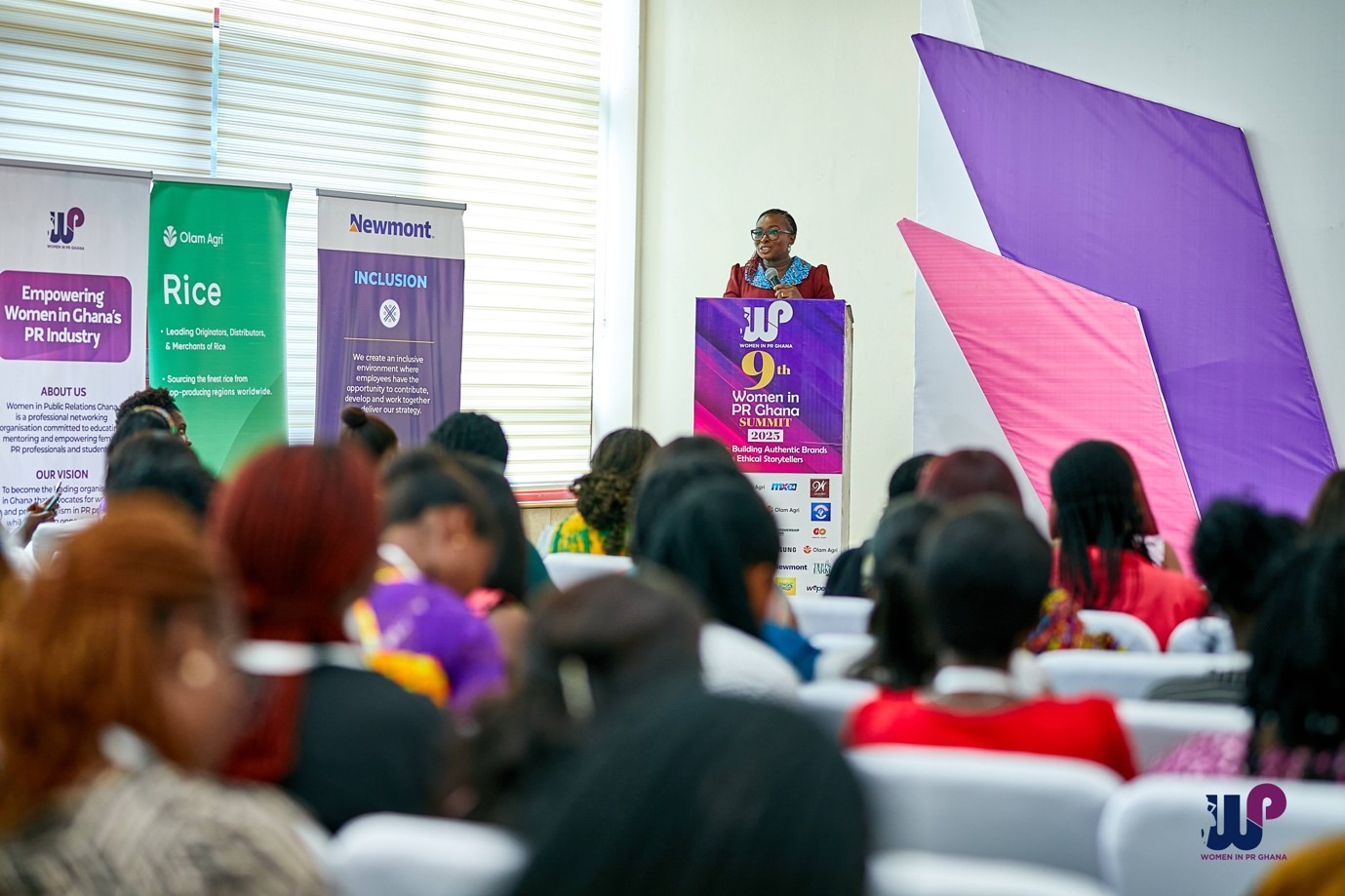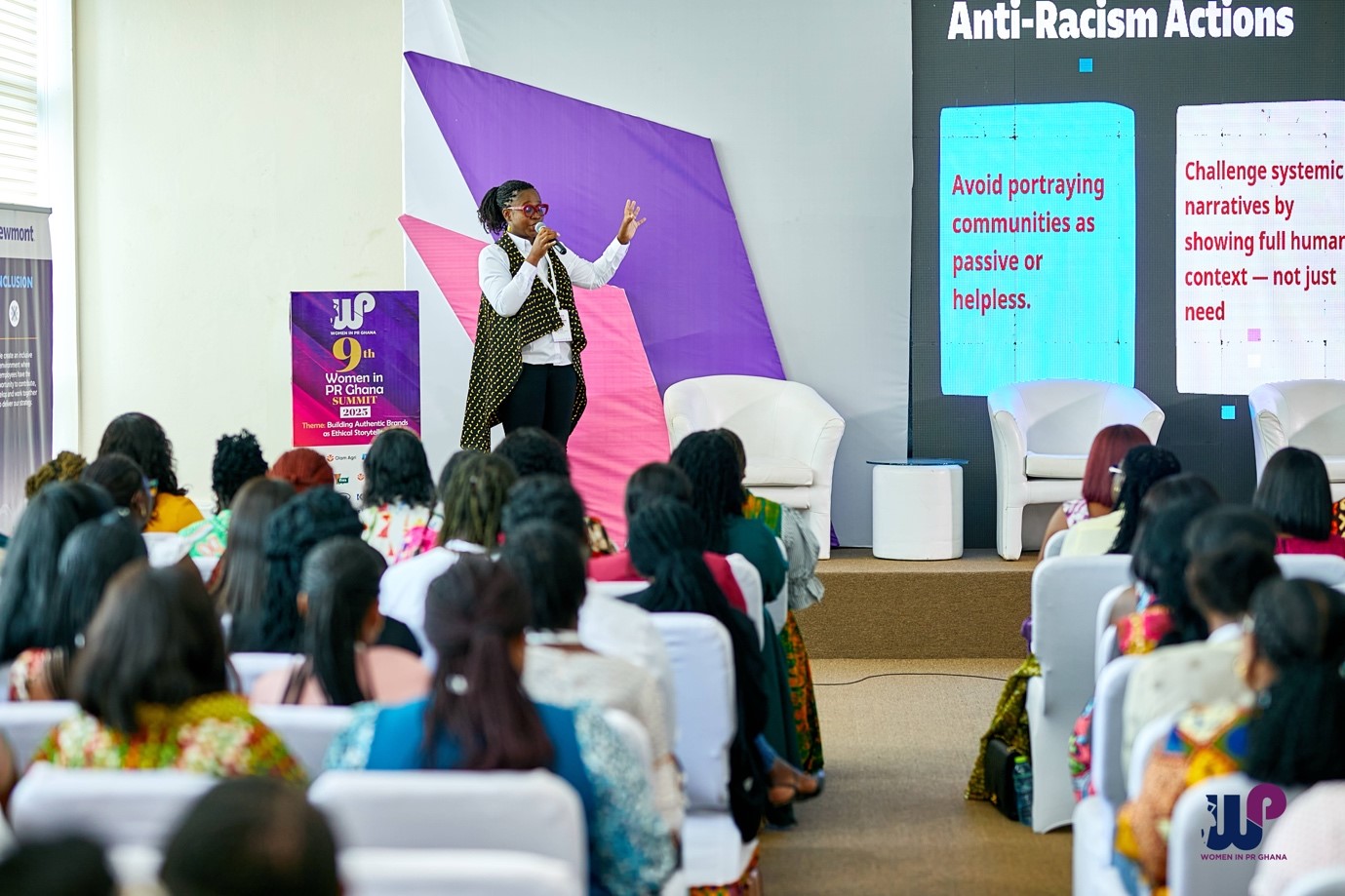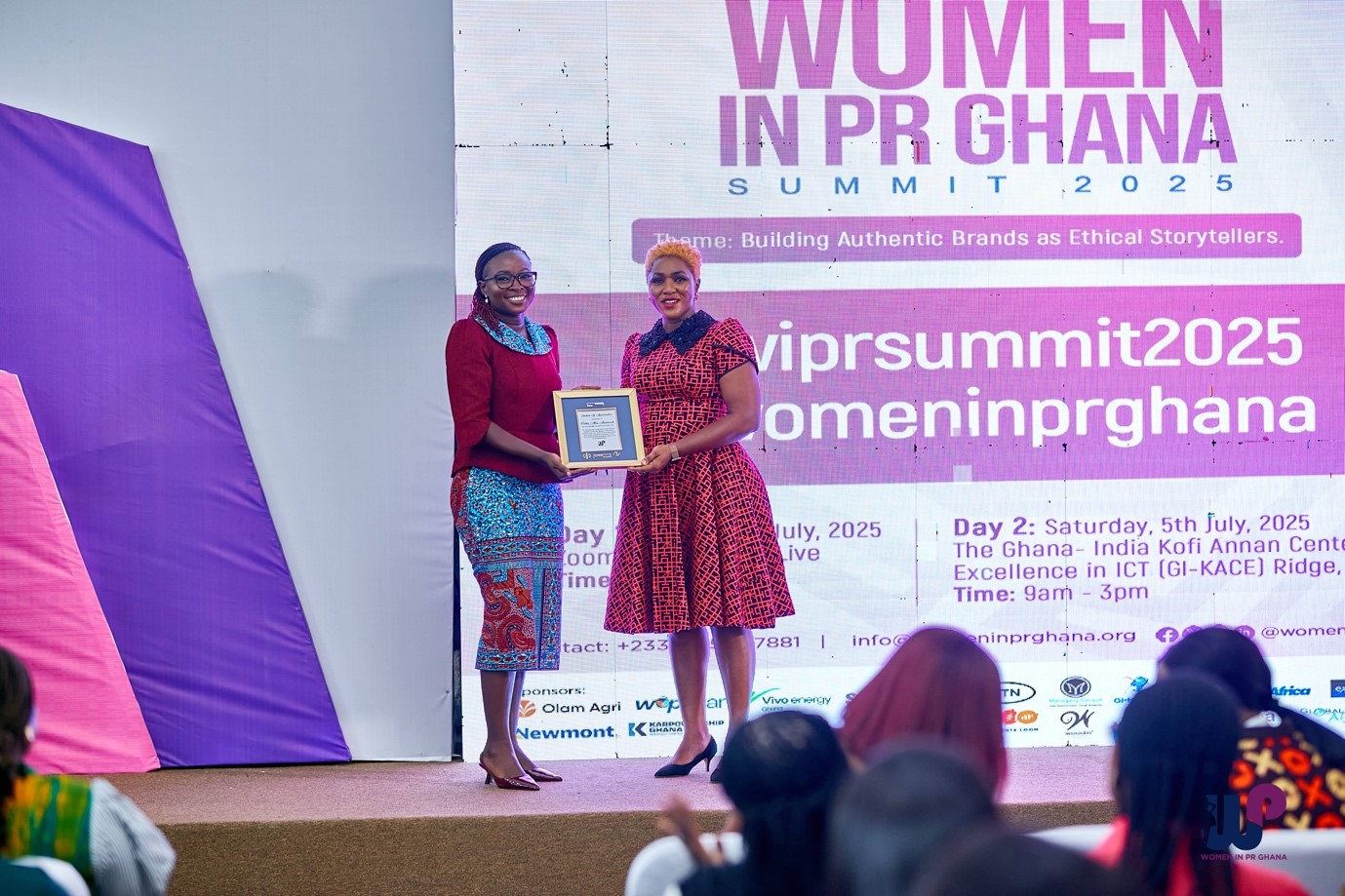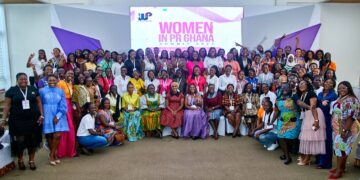At the 9th edition of the Women in PR Ghana Summit, renowned author and storyteller Petra Aba Asamoah called on PR practitioners to embed ethics not just in PR departments, but at the very top of organizational strategy.

In her keynote address, she asserted that “ethical leadership must begin at the executive level,” emphasizing that stakeholders now demand more than polished messaging they expect transparency, responsibility, and intentional communication.
Held under the theme “Building Authentic Brands as Ethical Storytellers”, the two-day summit brought together leading voices in Ghana’s PR space to reflect on the importance of truth, inclusive narratives, and purpose-led branding in an era overwhelmed by misinformation and distrust.
Opening the summit, Joyce Sackitey Ahiadorme, President of Women in PR Ghana, underlined the urgency of ethical storytelling in a media landscape where falsehoods travel faster than facts. “In a time when misinformation is louder than truth, the need for authentic branding and ethical storytelling has never been more critical,” she said. She challenged practitioners to reflect on the temptation to trade truth for popularity, noting, “If the story doesn’t honor ethics, let it remain untold.”
Doris Casares, Global Chief Communications Officer of Mango and GWPR member, focused her session on how brands can remain resilient in disruptive times. “It’s super important to keep your values, purpose, and history as brand communicators. That’s what will help you survive,” she stated.
Casares stressed the importance of internal brand strength, noting that employees are a company’s strongest ambassadors — but only when they are engaged and empowered. She urged practitioners to leverage research and social listening to stay in touch with audiences and build emotional connections rooted in trust and value, not just products.
Akosua Kwafo Ogyiri, Communications Manager at WaterAid Ghana, shifted the focus to representation and inclusion. She challenged practitioners to reevaluate how stories are told — and more importantly, who gets to tell them. “Representation is not cosmetic but a social justice issue,” she said.

Akosua warned against manipulative storytelling that disempowers or exploits, urging PR professionals to center agency, not sympathy. “We must co-create stories, not extract them,” she said, emphasizing the need for consent and accountability in storytelling. Her call was clear: tell stories with people, not about them.
A panel discussion moderated by Thando Dhaza explored the tensions between authenticity and manipulation in influencer marketing.
Derick Romeo Adogla of Newmont warned against blindly following influencer trends. “If the core values are not part of the DNA of your operations, it’s not authenticity,” he asserted.
Shirley Tony Kum, Communications Manager at Vivo Energy, added, “Manipulation is misleading people so your brand gains a certain level of equity.” She urged PR professionals to reject environments that demand half-truths and to embrace truth as a viable trend in itself.
Naa Dzama Amu, Communications Manager, Olam Agri stressed that authenticity must go beyond slogans.
“It’s a demonstration of honesty, transparency, and consistency over time,” she said, adding that influencer partnerships must be based on shared values and genuine experiences.
Panelists on Day 1, moderated by Nestlé Ghana’s Lorrencia Nkrumah, confronted the challenge of digital storytelling in an algorithm-driven world. Ruddy Kwakye of Rave Group reminded communicators: “If you feed it garbage, you’ll get garbage. If you feed it right, you’ll get the right answers.” He called for a stop to clickbait headlines that prioritize virality over human dignity.
Makafui Ayimey, founder of Accra Goods Market, urged organizations to prioritize internal culture, warning that “your biggest problem as an organization is when your staff don’t feel a sense of belonging.”
Maukeni Ribeiro, Brand and Communications Strategist, advocated for professionals to also manage their own credibility. “We do PR for everyone else but ourselves. It’s time to invest in our own trust capital,” she said. She cautioned against mismatches in influencer-brand values and advised that employees must be engaged before campaign rollouts.
Adding to this, Mariam Buahin, a brand and fintech expert, stated, “The real influencers of any brand are not celebrities but the people who work within the organization.” She urged brands to remain grounded in their values, monitor trends with discernment, and act only when aligned with purpose.

In a closing remark, Faith Sename Ocloo, Founder, Women in PR Ghana led the launch of the 10th anniversary of the Women in PR Ghana summit. She noted that the next gathering will be a celebration of ten years elevating voices, nurturing talents and leading change in the industry.
The 9th Women in PR Ghana summit was sponsored by Olam Agri, Newmont Wopecar, Vivo Energy, , Mahogany Consult , Samsung, Newmont, Global Media Alliance, YFM, MX24, Kapowership, FanMilk, MTN, Onga, Cowbell, Tilly Farms, Woodin, Awake Mineral Water, Nueva Communication, Ghana India Kofi Annan Centre of Excellence in ICT Kente loom, Sempoa, Excelsis, Comms of Africa, Yfm, MX24.




















